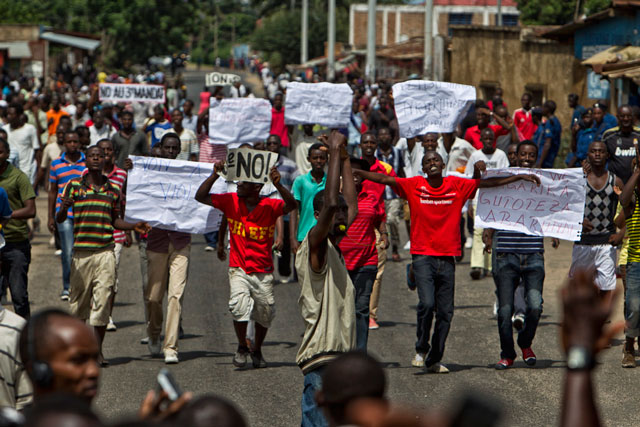
Bujumbura, Burundi | AFRICAN ARGUMENTS | Two years since Burundi was plunged into violent political crisis, there are two diametrically opposing narratives being told about the current situation.
If you listen to the government, the country has recovered from the clashes and mass displacements that engulfed it from 2015. Things are now secure and back to normal, they say.
“Burundi has gained peace and stability,” said President Pierre Nkurunziza on a visit to Tanzania last month. His Tanzanian counterpart, John Magufuli, similarly commented: “I urge Burundians to remain in their country. I have been assured the place is now calm.”
However, listen to local human rights groups or international observers and a very different picture emerges.
Earlier this month, the UN Security Council expressed its “deep concern” over Burundi’s worsening humanitarian situation. In June, a UN commission of inquiry emphasised the “persistence of serious human rights violations in a climate of widespread fear”. Meanwhile, a recent report by the International Federation for Human Rights (FIDH) claimed the ongoing crisis has now left at least 1,200 dead and seen the imprisonment of 10,000 people for political reasons.
This disagreement is not just a battle over narratives, but over the actions now needed to move Burundi forwards.
READ FULL ANALYSIS HERE (click)
With #Burundi still in crisis, #Nkurunziza looks to be gearing up to remove term limits to run again in 2020 https://t.co/GK7jCFgDji
— African Arguments (@africaarguments) August 16, 2017
 The Independent Uganda: You get the Truth we Pay the Price
The Independent Uganda: You get the Truth we Pay the Price





